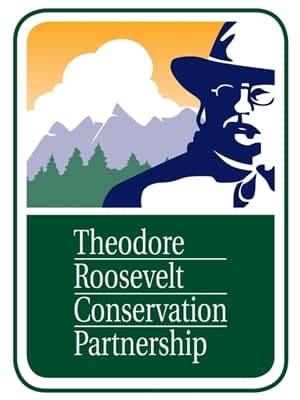TRCP Joins CARE Coalition to Advocate for Refuge Funding, Improvement

TRCP cites importance of National Wildlife Refuge System to fish and wildlife, sportsmen, health of America’s economy
As part of its mission to increase public access and opportunities to hunting and angling, the Theodore Roosevelt Conservation Partnership has formed a new partnership with the Cooperative Alliance for Refuge Enhancement, or CARE, which advocates for operations and maintenance funding for the National Wildlife Refuge System.
“In a time of dwindling access for sportsmen across the country, the National Wildlife Refuge System provides public hunting and angling opportunities whose value cannot be overstated,” said TRCP President and CEO Whit Fosburgh. “As part of CARE, we at the TRCP look forward to working with the coalition’s diverse membership to advocate for increased funding for the Refuge System – and to continuing to enhance and expand the ability of sportsmen to access high-quality areas of habitat.”
Founded in 1995, CARE is a coalition of 23 wildlife, sporting, conservation and scientific organizations dedicated to reducing the Refuge System’s maintenance backlog and ensuring adequate funding for the U.S. Fish and Wildlife Service to manage the 150 million-acre system for exemplary wildlife habitat and quality user experiences. The coalition is currently chaired by the National Wildlife Refuge Association, and together, the organizations represent more than 16 million Americans.
“CARE is one of the most diverse coalitions operating in Washington, D.C., bringing together groups like the National Rifle Association and Defenders of Wildlife who agree to check their differences at the door and unite to ensure our national wildlife refuges have the funding they need,” said David Houghton, NWRA president and chair of CARE. “The TRCP’s involvement could not come at a better time as the Refuge System is facing massive funding cuts that threaten their ability to execute the wildlife conservation that makes them so important to all Americans.”
Fosburgh underscored the economic importance of national wildlife refuges and criticized proposals to cut funding for their conservation and management.
“The economic impact of American sportsmen is considerable,” Fosburgh continued, “and national wildlife refuges play no small part in this equation. Adequate funding for the U.S. Fish and Wildlife Service to manage game species, as well as to provide high-quality wildlife habitat and user experiences for hunters and anglers, is key to sustaining these economic benefits.”
A new report shows that national wildlife refuges generate $2.4 billion and support more than 35,000 jobs. On average, for every $1 appropriated to run the system, almost $5 is returned in economic impact to local communities.
Hunting and fishing can be permitted by the USFWS in areas of refuges where they are compatible with the refuge’s purpose and mission. Hunting is permitted on more than 329 wildlife refuges and fishing on more than 271 wildlife refuges.

